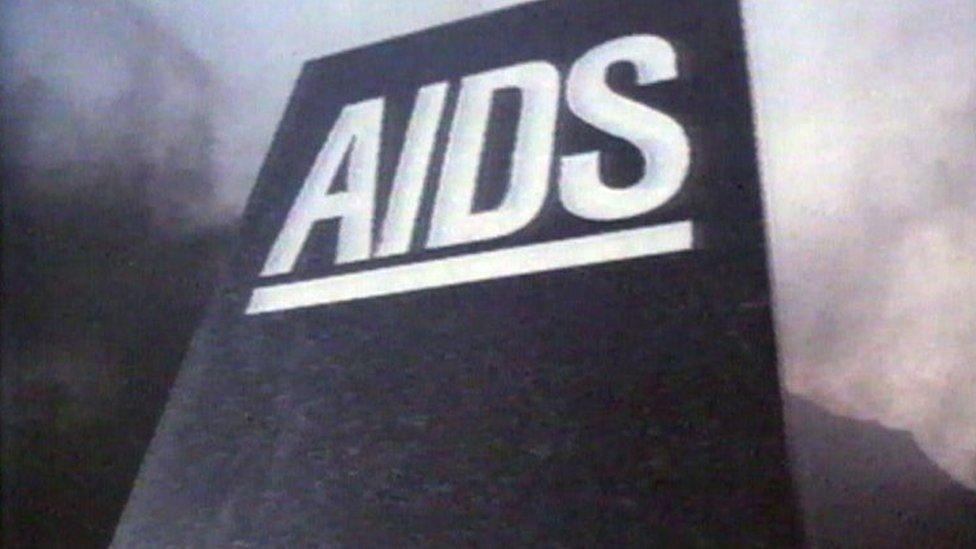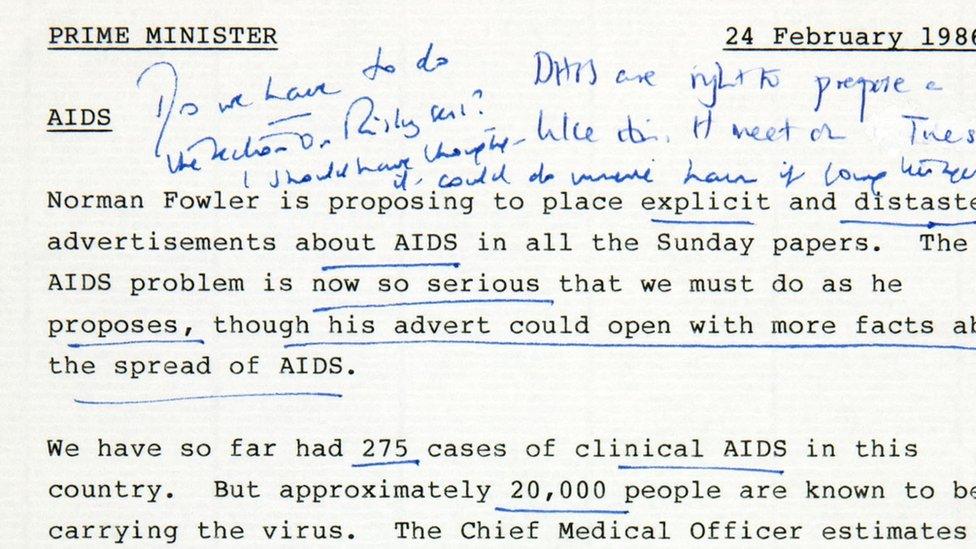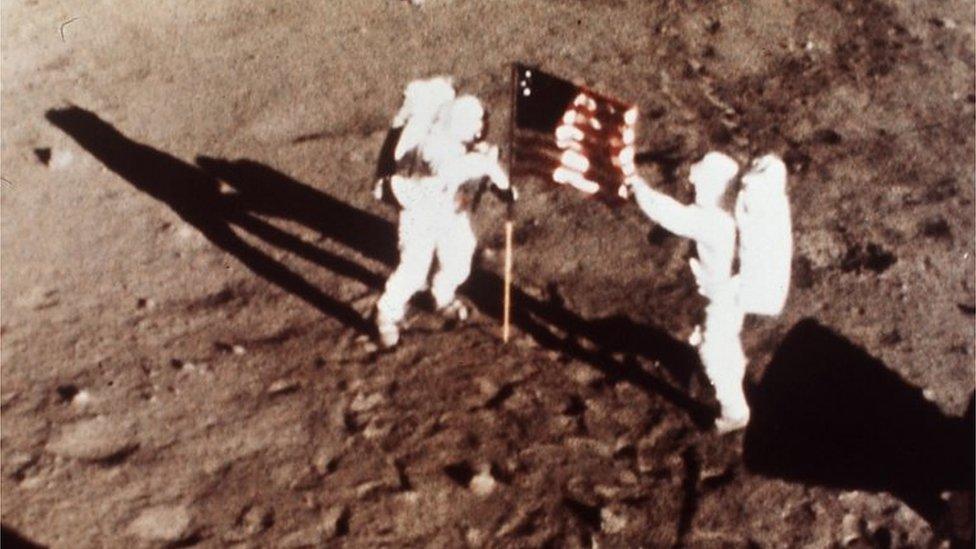Thatcher fears over Aids awareness campaign revealed
- Published

Former PM Margaret Thatcher feared teenagers would be "harmed" by an Aids awareness campaign which detailed how the disease spread, but was overruled, newly-released files show.
Cabinet papers from 1986, released by the National Archives, reveal the then prime minister repeatedly queried the wording of advertisements and leaflets.
One document shows she was warned of the health hazard facing the UK.
Mrs Thatcher responded by questioning the need for a section on "risky sex".
"I should have thought it could do immense harm if young teenagers were to read it," she wrote at the top of a February 1986 memo from David Willetts, then a member of the Number 10 Policy Unit.

Margaret Thatcher's handwritten notes on the memo
In it, Mr Willetts - who later served as a minister under David Cameron - said the health secretary Norman Fowler was proposing to place "explicit and distasteful advertisements about Aids in all the Sunday papers".
Mr Willetts, who had already warned Aids "was one of the most serious public health hazards facing this country for many decades," told her the problem was now so serious the government had to do what Mr Fowler was proposing.
At this time, an estimated 7,500 people had been diagnosed with HIV in Britain after the new disease had crossed the Atlantic. However, there was massive ignorance about how it spread and there were an unknown number of people who had the disease but did not know.
As part of the Aids public awareness campaign a leaflet was sent to every household in the country, there was a week of educational programming and the now-iconic television advertisements, voiced by actor John Hurt, appeared on British screens.
Anxiety fears
Another document released by the National Archive shows Mrs Thatcher's reservations were put forward by her deputy, Lord Whitelaw, who was chairing a Cabinet sub-committee discussing Norman Fowler's text the following day.
After the meeting Mr Whitelaw wrote to her, saying he had raised the question, but had been told by health ministers and the chief medical officer, Sir Donald Acheson, that avoiding the riskiest practices was the only way to stop the spread of the disease and that the passage in question was essential.
"As there was no support at all for the doubts I had aired, the committee agreed that the publicity should go ahead next month," he told her.
On 3 March she tried again. Was the advertisement acceptable to the Advertising Standards Authority, she asked, and had someone checked that it did not fall foul of the Obscene Publications Act?
Yes, she was told.
She still was not happy. "I remain against certain parts of this advertisement," she wrote. "I think the anxiety on the part of parents and many teenagers who would never be in danger from Aids exceeds the good it may do... adverts where every young person will read and hear of practices they never knew about will do harm."
Number 10 wrote to Norman Fowler's office relaying her displeasure, saying: "Your secretary of state will now wish to consider how to proceed in the light of the prime minister's firmly-held views. He may wish to consider showing the prime minister an amended advertisement which omits the parts which, in the prime minister's view, would be likely to offend."
This was as close as a civil servant could get to issuing a cabinet minister with an order.
The health secretary responded by offering a very minor concession, replacing a section on anal sex with a single phrase.
When a second series of advertisements was planned for June the health department withdrew even the one concession it had made earlier. Documents show Mrs Thatcher agreed.
- Published30 December 2015

- Published30 December 2015
